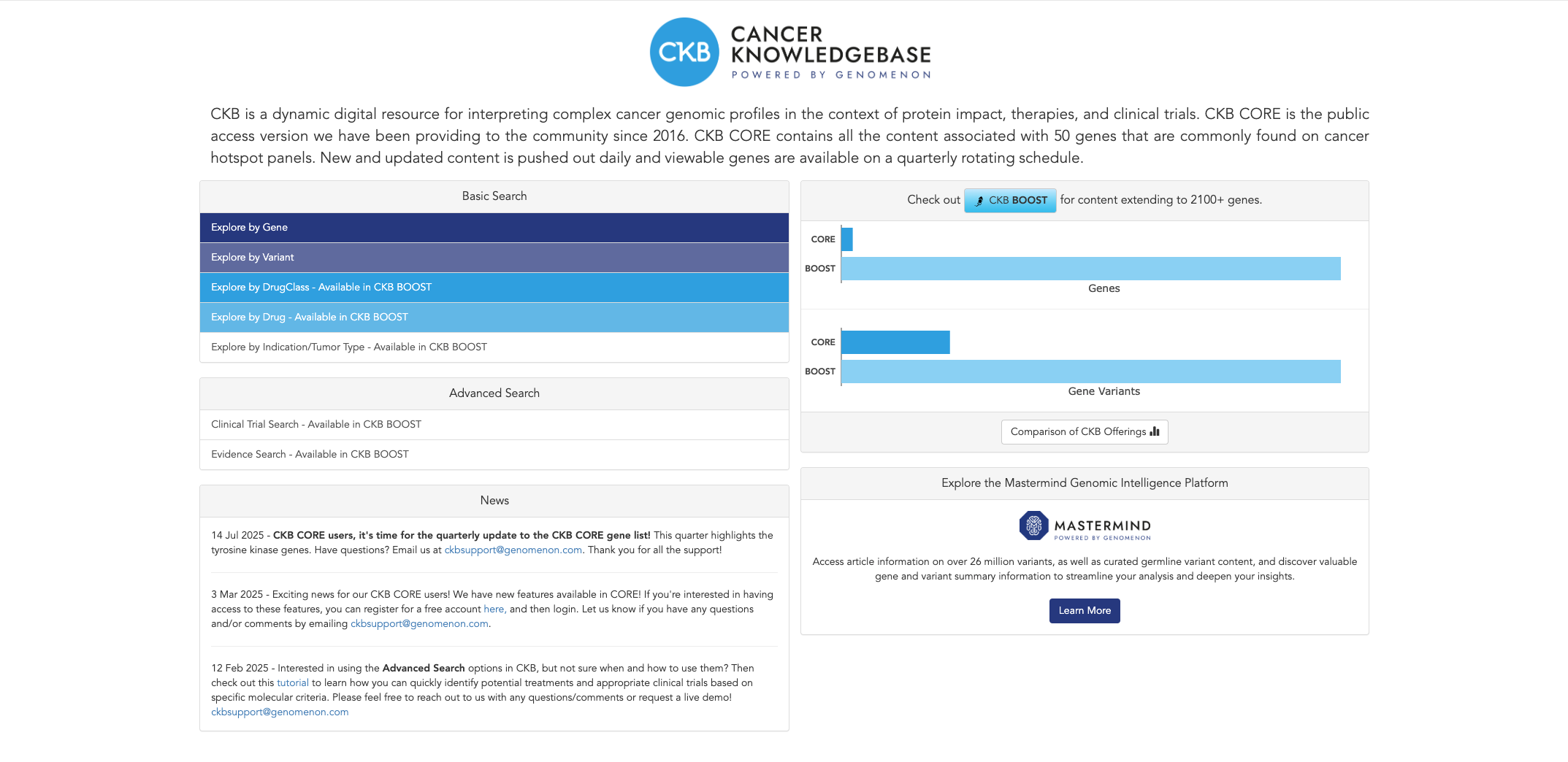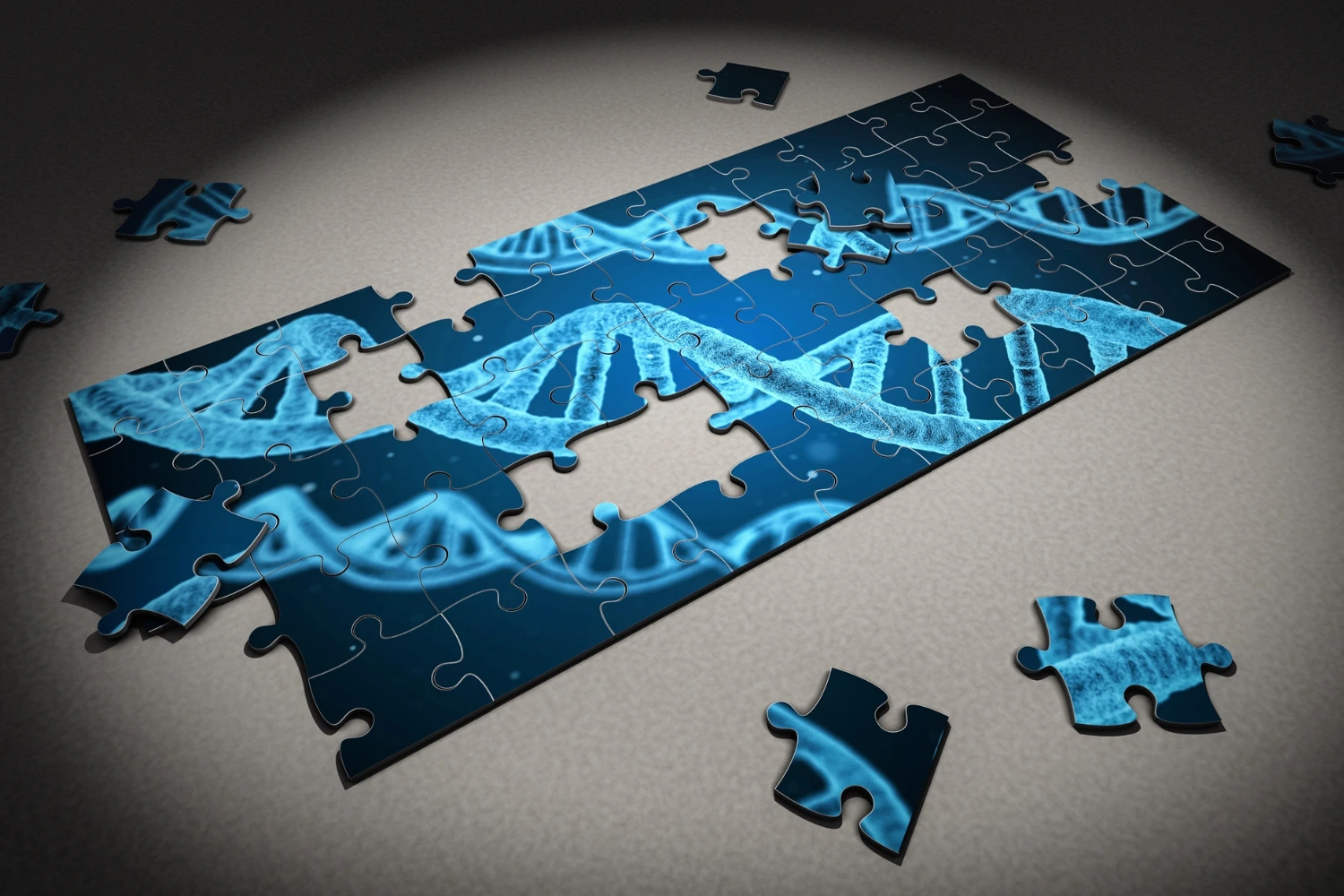Most people know the Cancer Knowledgebase (CKB) for what it delivers: expertly curated, clinically relevant information about cancer variants. But few know what it takes to keep that knowledge fresh, accurate, and reliable - day in and day out.
Maintaining a knowledgebase isn’t just about adding new data. It’s about making sure every variant already in the system remains correct, current, and meaningful in the fast-moving world of genomics. That’s why CKB’s curation team devotes just as much energy to maintenance as it does to growth.
Here’s a peek into the kinds of ongoing work that keeps CKB sharp - and how one category in particular, Variants of Unknown Significance (VUSs), represents both a challenge and a mission
The Never-Ending Job of Variant Maintenance
CKB doesn’t just grow - it evolves. With the database now encompassing 2,187 genes and nearly 49,200 variants, our commitment extends beyond expansion to the continual maintenance and updating of existing content, ensuring it stays accurate and valuable for our users.
Curators regularly review existing content to ensure it reflects the latest evidence. That means:
- Monitoring new publications for data that could refine variant interpretations
- Adapting to evolving clinical guidelines, ensuring actionability assessments remain aligned with the latest recommendations
- Maintaining nomenclature standards so every record is clear and consistent
High-priority genes and clinically significant variants receive more frequent scrutiny, recognizing their impact on patient care.
VUS Review: From Unknown to Understood
Few areas demand as much persistence - or yield as much potential impact - as the review of Variants of Unknown Significance (VUSs).
These variants, which lack enough evidence to be deemed actionable, are not left to languish in the database. Instead, CKB curators systematically review them every 6 - 12 months to identify:
- New functional studies that clarify protein effect
- Emerging case reports or clinical trial data
- Contextual evidence from related variants
Some VUSs have no published data at all; others contain conflicting evidence that may require downgrading their classification until the science is clearer.
CKB further distinguishes between actionable and non-actionable VUSs. Unknown actionable variants receive extra attention, with dedicated curation support staff flagging new evidence for curators to review. Each reclassification - from “unknown” to “actionable” or vice versa - has the potential to change clinical decision-making. This process isn’t automated. It’s hands-on, expert-driven, and deeply evidence-based. And it means that CKB isn’t just storing VUSs - it’s actively working to resolve them.
Maintaining the Evidence Backbone
Variant-level accuracy is only part of the story. The high-level evidence framework that underpins CKB also undergoes constant refinement:
- FDA approvals: Monitored in real time for additions, removals, label expansions, and other changes to approved therapies.
- NCCN guidelines: Both solid tumor and hematologic treatment guidelines are reviewed monthly for biomarker-specific updates that could alter clinical actionability.
Going Beyond the Variant: Supporting Metadata
CKB’s reliability depends on more than variant interpretations. The supporting metadata - the scaffolding of the database - is maintained with equal precision:
- Gene nomenclature: Weekly alerts from NCBI flag new synonyms or symbol changes, ensuring CKB remains aligned with authoritative sources.
- Disease ontology: Updates from DiseaseOntology.org are integrated to capture new cancer type terms or replace outdated ones.
- Drug records:
- Drugs with limited information are revisited on a set cadence (often annually or biannually) to incorporate new descriptions from NCI sources or emerging literature.
- Drug names are kept current through every stage - from early development codes to generic names to trade names.
- Drugs with limited information are revisited on a set cadence (often annually or biannually) to incorporate new descriptions from NCI sources or emerging literature.
- Clinical trial recruitment status: Updated daily via an automated feed from clinicaltrials.gov.
- Canonical transcript alignment: Monitored for rare changes to ensure gene records match MANE Select standards.
The goal? To ensure that every entry in CKB feels like it was written today - not five years ago.

In genomics, context is everything. A variant's relevance can shift dramatically based on the latest research. That’s why maintenance is not an afterthought - it’s a core part of what makes CKB trustworthy.
When oncologists, researchers, and molecular pathologists turn to CKB, they’re not just getting static snapshots. They’re getting a living, breathing system, reviewed regularly and maintained with the same care it took to build it in the first place.







